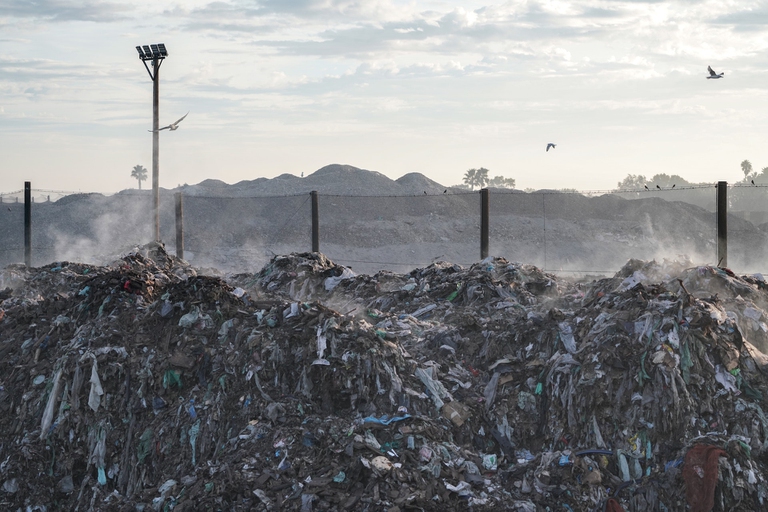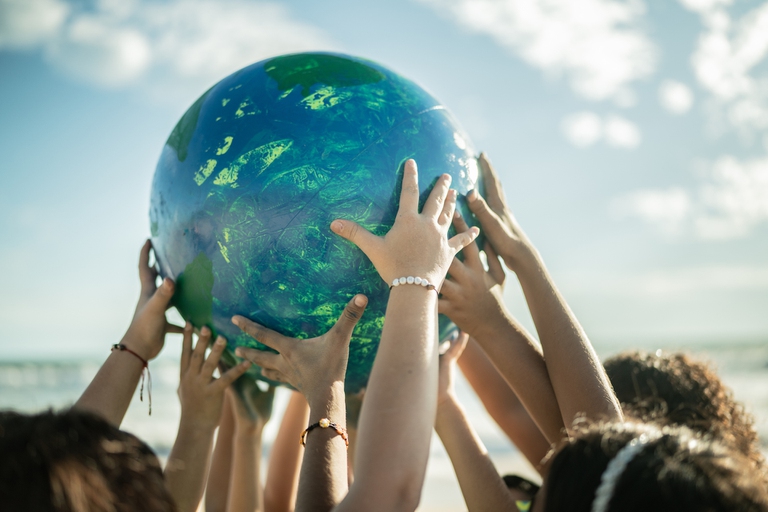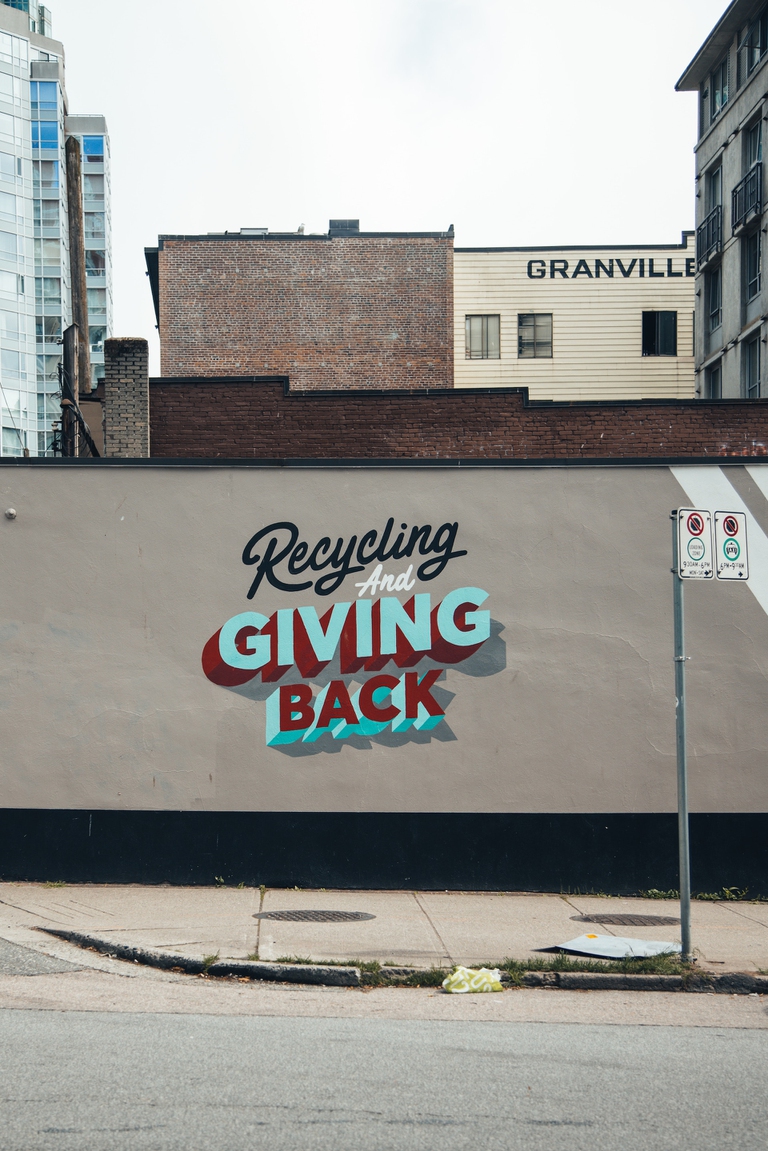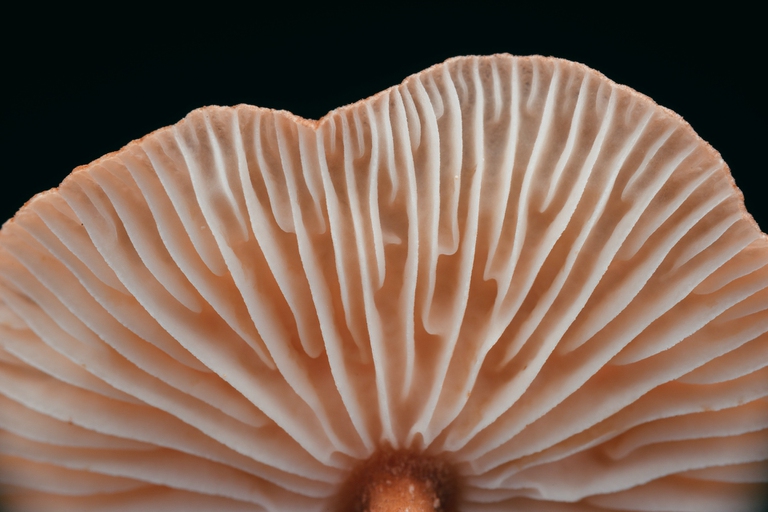https://www.lifegate.it/6-startup-di-moda-sostenibile
- |
- In ten years the panorama of sustainable fashion startups has blossomed, establishing in all respects that this is the most interesting field in which to concentrate investments in the textile sector.
- Responsible credentials are an increasingly important asset for brands and consumers are increasingly aware and attentive to misleading statements and green washing.
- With the help of the Dutch NGO Fashion for Good we have selected the six startups that have performed best in the last year and which are helping to shape the future of the textile sector.
If we applied the Ten year challenge popular on social media to the industry sustainable fashion startup we would indeed observe a big change.If just ten years ago the same concept of sustainability was just starting to appear and circulate in the sector, today we can affirm without too many uncertainties that it is one of the main topic around which most brands stand organizing or re-organizing.There are those who started asking themselves the problem a long time ago, those who are struggling by putting together marketing strategies that are a jumble of greenwashing and there are those who were born with ethics as the fulcrum of their business model:startups in the field of ethical fashion they are undoubtedly experiencing their golden age.Thanks to the help of Fashion for Good, a Dutch NGO that also acts as a global platform for innovation and supports startups in their process towards scalability, providing practical project management, access to funding, expertise and collaborations with brands and manufacturers to accelerate the implementation in the supply chain, we have selected the six that, in the last year, have grown the most giving a strong contribution to the definition of the market as it is today.

The golden moment of startups is the result of a "perfect storm"
This is mainly due to factors that are shaping the best possible conditions:brands today have to reorganize themselves and, to do so, they need new tools, new materials, new ideas.According to the report that McKinsey wrote together with Business of Fashion, The state of fashion 2023, the global fashion industry continues to remain very fragile after the blow caused by the pandemic and despite the recovery recorded in 2021 and 2022:fashion's big bosses are pessimistic about the years to come.About l'84 percent of industry leaders interviewed in the BoF-McKinsey survey said they expect to end 2023 with stable or even worsening conditions.This is partly due to the economic contraction, which has led many consumers to reduce their clothing purchases, but also to the fact that we find ourselves in a historical moment in which the values with which a brand identifies itself are particularly crucial for build customer loyalty.As the industry continues to grapple with its own environmental and social impact, consumers are increasingly skilled at analyzing and judging the way brands communicate theirs sustainability credentials and recognize whether or not these are truthful.To avoid the infamous label of greenwashing, brands must demonstrate that they are creating a significant and credible change complying with regulatory requirements.The materials on which the fashion industry depends, for example, are an integral part of the process of improving the entire sector to reduce its environmental impact and meet customer sustainability expectations.As for textile producers, they can create new supply models, reorganizing their supply chains in a more vertical manner and based on the logic of territorial proximity.

The 8 startups that are performing best in 2023
1.Renewcell
Currently, a large percentage of textile products end up in dump or is incinerated, rather than recycled or reused:To date, less than 1 percent of the clothes produced are recycled into new textile fibres.The technology of Renewcell offers a solution to this problem, reducing the amount of textile waste that ends up in landfill and creating value by exploiting the principles ofcircular economy.This startup has developed a patented process to turn cotton and other cellulose-rich fabrics into a high-quality dissolving pulp, Circulose®, which is produced at 100 percent from textile waste, such as worn jeans and production waste.Fiber producers can use this dissolving pulp to produce new man-made cellulosic fibers (MMCFs) which are then spun into new yarns, woven or knitted, and finally cut and sewn into new high-quality textile products.In the last year Circulose® has been used in the collection Classics Reborn That Tommy Hilfiger he accomplished with Shawn Mendes, in the Calvin Klein's CK Soft Skater collection and two-piece total denim by & Other Stories.
2.Circ
The technology implemented by Circ offers a solution for the polycotton recycling, the fiber that most of our clothes are made of, into materials that can be reintroduced into the fashion supply chain to produce new clothes.This is possible thanks to a hydraulic process through which textile waste is transformed.In short, in this process synthetic fibers (such as polyester) are separated from cellulose content (such as cotton, bamboo, lyocell, viscose and other materials of vegetal origin), which the company is then able to recover separately by transforming waste from textile processing into high quality fibers which in this way reduce our dependence on virgin materials.Circ was born in 2011, but over the last year it has managed to raise a record amount of 25 million dollars in a loan to extend its recycling production with investments from Zalando, Avery Dennison and Youngone and was nominated among the finalists of theEarthshot Prize 2023 announced by Prince William.

3.Oritain
Transparency and traceability supply chain are becoming increasingly important factors for consumers.But with the complexity of supply chains in the textile industry, knowing exactly where and how every single item of clothing was produced is no easy task. Oritain offers a solution to this problem:this startup is capable of check and identify theorigin of the fibers and materials to reassure customers of the integrity of the products.The unique testing methodology combines forensic science and data to test a material's geochemical composition, which is unique to where the fiber was grown.The isotopes and trace elements detected in the yarn are interpreted to produce aImprint of Origin, which provides information on the origin of the material, allowing traceability at any point in the supply chain.The composition of the soil, the climate, the altitude, the rainfall and other environmental factors are in fact able to reveal the details of the origin of a product.But the important thing is that once the Origin Fingerprint is created, it can be used to verify products at any point in the supply chain, to clearly distinguish legitimate from fraudulent ones.Furthermore, unlike other traceability methods, it cannot be tampered with, replicated or destroyed.During 2023 Oritain collected 57 million dollars to enhance its forensic technology to be able to verify products worldwide.
4.TextileGenesis
This startup provides effective tracking methods built on blockchain regarding the textile supply chain through its Software as a Service (SaaS) platform, which allows both brands and producers of sustainable fabrics to ensure reliable mapping, safe and completely digital of their fabrics, from fiber to consumer.In fact, blockchain technology allows the digitization and consequent traceability of any textile good such as fibres, yarns, fabrics or clothing through digital elements called Fibercoins™.To date TextileGenesis™ focuses on sustainable fibers such as those based on wool, organic cotton, special filaments, silk and cashmere.Founded in India in 2018, over the last 12 months it has been acquired for 51 percent, i.e. 15.2 million euros, from high-end fashion services company Lectra.

5.Ecovative
With the observation that plastic pollution surrounds us in everyday life, Ecovative has developed innovative technologies using the mycelium, a structure contained in the root of mushrooms, to create sustainable materials that are biodegradable, decompose naturally and can replace materials commonly made of plastic.This sustainable fiber startup has been experimenting with two different technologies: MycoComposite™ And AirMycelium™.The first combines sustainable materials with mycelial fibers to produce packaging such as Mushroom® biodegradable and environmentally friendly building materials, while AirMycelium™ grows 100 percent pure mycelial materials producing sustainable alternatives to leather, plastic and other products derived from fossil fuels and industrial agriculture.Active since 2007 Ecovative has recently raised over 30 million dollars to scale your distribution globally.
6.Infinited Fiber Company
Also this startup focuses on the transformation of textile and cardboard waste, which is rich in fibre post-consumer cotton which can be recycled and reused.The innovative process involves the breakdown of materials made from cellulose such as cotton, viscose and denim into a pulp, which is then treated with a chemical process that transforms it into a regenerated fiber that can be spun and woven into new fabrics.The resulting fiber, Infinna™, it is durable, versatile and can be used in a variety of textile applications.It shares many properties with cotton in terms of feel and versatility, but eliminates the need to grow new plants, instead putting the value of what has already been produced back into circulation.Active since 2016, Infinited Fiber Company has invested throughout 2023 400 million euros in a textile fiber factory, which is expected to operate at full capacity starting from 2026, with an annual production capacity of 30 thousand tons of regenerated fibres.
7.Wrad/School of Wrad
The mission of this startup is to organize sessions and workshops dedicated to fashion and textile companies and organizations that want to commit to changing their business model:culture of sustainability and understanding of social responsibility and environmental are the main tools through which Wrad pursues its objective.An honest transition towards more responsible business models finds its foundation in the development of the brand strategy, in creating targeted communication campaigns but, above all, it starts from rethinking product design and development.The educational objective of this company is to make people understand the social and environmental value of responsible products and direct those who turn to them to use innovative materials and processes.
8.Id Factoty
Id Factory:is a traceability platform supply chain (SaaS) which, through the creation of a digital ID, allows companies in the fashion and textile sector to obtain complete transparency on the global supply chain.The main focus of this startup is to track the materials focusing on collecting real-time data from material suppliers following the production flow (Material Forward Tracking) and then allow its validation through a double-level traceability system, both digital and physical, applying QR codes on all materials and finished products to effectively connect the information coming from the various systems with the actual flow of materials at factory level.
